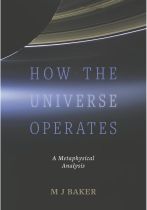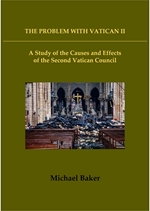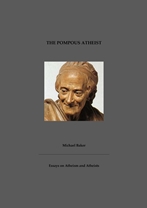

![]()
By the rivers of Babylon there
we sat and wept, remembering Zion;
on the poplars that grew there we hung up our harps. . . Ps 136

 |
under the patronage of St Joseph
and St Dominic
By the rivers of Babylon there
we sat and wept, remembering Zion; |

|
|
|
MATER POPULI FIDELIS - MATER ECCLESIAEThis is a study of two novel titles accorded the Blessed Virgin by Popes sixty one years apart which bear the same, heterodox, ring. The most recent offers a substitute for her legitimate titles, Co-Redemptrix and Mediatrix of all graces, one which reflects the poison of the Modernist heresy. more TWO WORM-RIDDEN POPES—PART IIThis is a revision of our opinion as to the identity of the two Popes referred to by Our Blessed Lady to the children at La Salette in 1846 as 'Worm-ridden'. more SIR JOHN KERR, THE DISMISSAL & THE AGE OF FOLLYThe usual prejudices have surfaced on the 50th anniversary of Sir John Kerr's dismissal of the appalling Labor Government under Gough Whitlam in November 1975. It is almost impossible to find a dispassionate comment on the topic. Visitors to this website are invited to read Peter O'Brien's The Dismissal Deniers on the Spectator here - https://www.spectator.com.au/2025/11/the-dismissal-deniers/ and the paper on the topic available on this website written in 2012 - https://www.superflumina.org/PDF_files/Sir_John_the_dismissal.pdf IS THE POPE A CATHOLIC?The latest act of folly from the Vatican concerning titles Christ's Church has long since acknowledged of Our Blessed Lady will have the Catholic faithful asking this fateful question. more THE BEATIFYING OF JOHN XXIIIIn or about the year 2000, as Pope John Paul was preparing to beatify the late Pope John XXIII, Fr Luigi Villa, an associate of Padre Pio, penned a Letter to the Episcopate in protest. The Italians have a saying tradutorre traditore, ‘to translate is to betray’. The axiom is certainly true of ham-fisted efforts that produce a literal, rather than idiomatic, rendering of what is said in the original language. This is the case with the currently available translation of Fr Villa's Letter. We have re-rendered it here in idiomatic English. The present writer has not seen the original Italian, and is not competent to translate from that language. He has aimed, however, to reproduce the sense of the letter. Because the direction of Fr Villa’s argument is not always clear, he has taken some liberties with the text, though never so as to controvert what Fr Villa appears to be saying. more PIUS V'S BULL QUO PRIMUM"TLM SUPPRESSED" - WHAT NONSENSE!The Catholic faithful throughout the world are constantly misled by bishops, clergy, and so-called ‘Catholic’ commentators as to the right of priests to celebrate and of the faithful to attend, the Millennial Roman rite of Holy Mass canonised by Pius V. The saintly Pope canonised that rite forever in 1570 and no pope, bishop or religious superior has the power to ‘suppress’ it. It is fitting to issue this warning on the anniversary of the Feast of the Holy Rosary which St Pius V instituted to celebrate the victory over the Muslim forces of the Ottoman Turks at Lepanto. more
THE CHURCH OF PAUL VI AND OF JOHN PAUL IIWhat Pope Paul VI intended by the title 'Mother of the Church' imposed on Our Blessed Lady is other than what you think. more ARCHBISHOP VIGANÒ’S EXCOMMUNICATIONThis is a study of the events leading to the purported excommunication of Archbishop Carlo Maria Viganò on July 5th, 2024. Along with the immense power of intellect Almighty God gave us the facility of distinction. He expects us to exercise it. We do that by not jumping to conclusions, not assuming that because Archbishop Viganò is excommunicated, or allegedly excommunicated, everything he says may be ignored. At the heart of the business is the radical division among the Catholic faithful brought about by the immense imposture of the Second Vatican Council. more Review of How
the Universe Operates
|
LAUNCH OF BOOK 'HOW THE UNIVERSE OPERATES'How the Universe Operates was launched by UK publishers Austin
Macauley on December 8th 2023.
A link to the publisher’s website is here.
The
book is featured on Amazon here. It may be purchased
either in Kindle or paperback editions at good
booksellers or via amazon.com or amazon.com.au . It is
also available at Cardinal Newman Faith Resources for
$24.95 plus postage (if applicable), see https://cardinal-newman-aus.myshopify.com/products/baker-how-the-universe-operates?_pos=1&_sid=6cda1d18e&_ss=r
|
 |
Today marks the 120th anniversary of the death of Pope Leo XIII and the twentieth anniversary of this website. It is appropriate for us to provide a report on those years of operation. Regrettably things have not got better but worse not only for the Catholic faithful but for society generally. Despite the chaos that marks the current governance of God's Holy Church as a result of the abdication of Catholic in favour of Modernist principle on the part of Pope and bishops, the Holy Spirit is still running the show. We take the opportunity to renew our faith in Him and His providence confident that His permission of the evils will result in the much greater good that He will elicit from them when the time is appropriate. more
The thinkers who followed, some 50 to 100 years after the event, the revolt of German and English Catholics against God and His Holy Church, sought to defend its inchoate atheism. Today we are suffering the appalling effects of the irrationality in which they engaged. That those effects are worse than they might have been we owe to the systematic abrogation of their responsibilities by the bishops of the Catholic Church. more
We publish here a further extract from historian Henry Sire’s Phoenix from the Ashes (Kettering OH, Angelico Press, 2015, pp. 93-100) to aid the Catholic faithful in their defence of the faith against the Protestant and atheistic impositions.
Galileo was a man who, in today’s argot, we would describe as possessed of attitude, i.e., truculence or pig-headedness. He was a good scientist but had a higher opinion of himself and his views than reality allowed. He was also dishonest. Had it not been discovered, long after the events that saw him marginalised by the Catholic Church, that his opinion was close to the truth uncovered by Sir Isaac Newton 55 years later, and that his condemnation could conveniently be used as a stick with which to beat the Church, his intemperateness might have attracted the obloquy it deserved. Sire identifies the issues in this way: “A clash between impudent folly and pompous autocracy has… been misrepresented as a conflict between science and religion... The use made of it to allege an opposition between the Church and science is significant in itself, because it is the only incident in the Church’s history capable of being so presented.”
The atheists of the French Revolution sent the father of modern chemistry, Antoine Lavoisier, to the guillotine. Though this treatment of the scientist was much worse than that attributed to the Catholic Church over Galileo, never a word is published by moderns condemning atheism or its exponents. moreDr Chris Decaen of Thomas Aquinas College has a splendid article on the topic on the College's website here:
https://www.thomasaquinas.edu/news/dr-chris-decaen-lecture-galileo-church
Phoenix from the Ashes - The Making, Unmaking, and Restoration of Catholic Tradition by H J A Sire [Kettering, Ohio, Angelico Press http://angelicopress.com/sire-phoenix-from-the-ashes , 2015] is as admirable as it is timely. Here is a review of this important book. more
THE PROBLEM WITH VATICAN IIThis is a book length pdf file comprised of various papers published on superflumina on the vexed topic of the Second Vatican Council. The reader can download it freely. He can navigate via the Index to any of its chapters. He can have his computer read the text aloud while he labours at some task in the house, or as he drives the car. It is hoped to produce it in several additional ebook formats in due course.This is a revised and shortened version of the original publication. more |
 |
THE POMPOUS ATHEISTThis ebook addresses the endemic modern problem of atheism—belief in no-God. Atheists assert that they are above superstition, the ‘superstition’ of religious belief, but it is not true. Not only are they believers, they are believers without the slightest evidence of that in which they believe. They are the real exponents of ‘religious liberty’ for they insist on the freedom to believe there is no God. Their every action involves acceptance of causation. But, obsessed with an idea, they choose to deny causations’s reality when it comes to their own essence and existence. In this series of essays we have endeavoured to make it plain just how stupid is the atheistic thesis.It is reasonable to believe in God, no matter how confused one’s belief may be. The fundamental issues are these: 1. I did not bring myself into existence; 2. I do not keep myself in existence; 3. in this world of reality I am one of the privileged beings for not only do I know singular things, like brute animals, but I know their very natures; 4. nothing exists without an adequate cause—and that includes me! Moreover, 5. the one who caused me must be living and intellectual, as I am living and intellectual—but an immensely greater being. It is hoped that the presentation of these essays will assist the reader in resisting the temptation to embrace the atheistic virus. more |
 |
See the complete set of lessons here